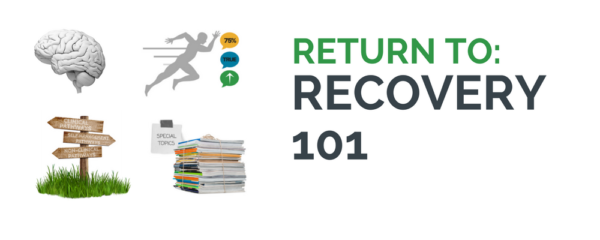
Addiction Treatment Scams Explained
Unethical marketing practices putting vulnerable addiction patients at risk.
There are examples of unethical and illegal conduct in all areas of medicine and healthcare, but substance use disorder has historically been largely unmonitored in comparison to other medical conditions, and so has been very publicly riddled with more than its fair share of deceits and deceptions that have exploited vulnerable patients for profit.
- READ MORE
-
Substance use disorders affect millions each year, and overdose is now the leading cause of accidental death in the United States and the overall leading cause of death among Americans under the age of 50. As a result, the need for treatment and recovery services has never been greater. This increasing demand has led to the rapid growth in the number of detox and treatment service providers, which has collectively and quickly burgeoned into a massive $35 billion dollar a year industry. The majority of these programs and service providers are working hard to provide honest, quality-care, to save lives and help people achieve long-term remission.
Like the old saying, “one bad egg spoils the batch,” despite the vast majority of programs and providers providing high quality and scrupulous addiction care, we have seen the popular news saturated with stories about “rehab” scams and various patient abuses.
The guide below will introduce you to some of the more prominent forms that these corrupt practices in addiction treatment have taken.
Here are the most common:
1. PATIENT BROKERING
- Lead Selling: Paying brokers a per-head finders-fee or kick-backfor referring patients to their treatment facility (e.g. financial compensation ($500-$1000 per patient) or special future consideration. This type of patient brokering is not only happening with patients new to treatment, but also in agreements made between recovery residences (e.g. sober houses) and treatment centers, or between two separate treatment centers.
- Lead Buying: When treatment centers bid for patient referrals and leads. Call centers are set up to generate commission based on their number of placed referrals, with call center agents posing as caregivers, and unbeknownst to the patient, auctioning off the patient to the highest bidding treatment center. Treatment facilities that appear as separate actually may all route to the same call center.
*Patient Brokering often entails what is called “Addiction Tourism,” which is the practice of sending a patient out of their home state to receive treatment at a facility in a different state.
2. PATIENT ENTICEMENT
Unethically incentivizing patients to enter, stay, or switch addiction treatment facilities through money, gifts, free rent, flights, food, or other amenities.
3. LISTING THEFT
The hijacking of Google business or Google Maps listings through the suggested edits feature. Unaffiliated individuals can go into an organization profile and change listed phone numbers to reroute calls and online correspondences to other treatment programs or call centers, and change listed addresses to deceive patients of actual location.
4. MISREPRESENTATION OF SERVICES
When treatment facilities deny their affiliations to other facilities or organizations or inaccurately portray the services they provide, their status of accreditation, the types of conditions they treat, the credentials of their clinical staff, what insurance providers they accept, or misrepresent their facilities, locations and amenities in any way.
5. PATIENT PRIVACY VIOLATIONS
The common practice of a patient’s health information, such as their treatment plan or diagnosis, discussed in a sales or marketing context, and shared with individuals outside the patient’s care team, without medical necessity or the patient’s consent. This is in violation of HIPAA and other patient privacy protection laws that work to protect sensitive health information of the individual.
6. INSURANCE OVER-BILLING
The process of billing insurance companies excessively for unnecessary treatment or services. This was commonly seen in urine drug screens, where $10 drug tests were being conducted every 2 days and billed at $1000 or more to insurance.
7. INSURANCE FRAUD
Under the guise of free insurance or care, patients, sometimes multiple at a time, are enrolled in insurance plans utilizing false addresses to take advantage of the “change in address” exception, which allows for year-round insurance enrollment. Patients are often unknowingly signed up for premium plans with generous coverage (e.g. out-of-network coverage and low out-of-pocket costs) available in states that the patient does not live in, nor has ever lived in, but serve to reimburse the ultimate treatment center at a higher rate than other plans or providers.
Unethical addiction marketing practices take advantage of vulnerable patients and families in desperate need of medical treatment and care.
Awareness is the first step in combating unethical addiction marketing practices, and greater awareness of these practices has led to new legislation, and increased scrutiny of addiction treatment providers by law enforcement, and even for-profit corporations such as Google.
In response to these corrupt practices, beyond ongoing criminal investigations led by local and state law enforcement agencies, the National Alliance for Recovery Residences (NARR) officially instated a code of ethics for recovery residences (e.g. sober homes) in 2016. More recently however, Google has temporarily ceased sale of pay-per-click (AdWords) advertisements on thousands of rehab-related search terms (e.g. rehab near me, alcohol treatment) that previously garnered sums of over $100 per click for Google, in attempt to thwart aggregate call centers. Google has been criticized for their role in perpetuating treatment fraud. In addition, beginning in 2018, the Joint Commission (JACHCO) will roll out a new outcome measures standard requiring evidence based practice (through the use of standardized measurement tools) for treatment facility accreditation.
Protecting patients from corrupt addiction marketing practices will be the first step in creating honest and effective treatment for substance use disorder. While decisions on what treatment facility to enter are often made in states of distress, it is important to emphasize that individuals and families should protect themselves by learning about what constitutes quality addiction treatment, where to search to find trusted local providers, and how to ultimately decide which option is best.


